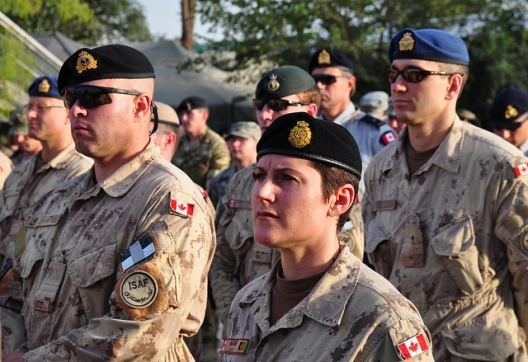 As 2014 seems to be the year that we look back and ponder what the Afghanistan war means for the future, the question becomes: what of NATO?
As 2014 seems to be the year that we look back and ponder what the Afghanistan war means for the future, the question becomes: what of NATO?
For everyone who participated, the experience was profoundly frustrating. As always, there was an uneven sharing of the burden. Canada used to be criticized for not spending enough of its gross domestic product on its military compared to many other countries. In Afghanistan, the burden-sharing problem was one of of blood, and, this time, Canada, along with several other countries, bore a disproportionate share of the burden. So, it is not surprising that there are many in Canada and in the other burden bearers (Denmark, Great Britain, Netherlands, U.S.) who are reluctant to do anything like this again. On the other hand, those that got the most criticism for not doing enough (Germany, Italy, Spain, etc.) feel as if they sacrificed a lot, losing significant numbers of soldiers but received no credit for it abroad and much criticism at home.
So, can we expect things to change the next time? To be clear, there will be a next time. Just as Kosovo created similarly sour sentiments about future NATO operations, Afghanistan may create a short period of reluctance followed by more NATO efforts. The reality is simple – most countries cannot fight alone and the one that can, the United States, has learned in Iraq that going alone is quite difficult. Moreover, the Iraq example serves another lesson – that coalitions of the willing have many of the same problems as NATO and other formal alliances but with fewer benefits. Just as there were contingents deployed in Afghanistan under the NATO banner that refused to do certain things, the U.S. found that members of the coalition of the willing in Iraq also had limitations on what they were allowed to do. . . .
The basic reality is this: democracies do not give up control of their troops when they send them abroad to participate in multilateral military operations. Doing so would be a huge breach in civilian control of the military, a fundamental component of modern democracy. Therefore, we cannot expect countries to change how they manage their militaries, even if such management led to underperformance in Afghanistan.
Stephen Saideman is Paterson Chair in International Affairs, CDFAI fellow and co-author of NATO in Afghanistan: Fighting Together, Fighting Alone.
Image: Canadian soldiers in Kabul, Sept. 11, 2011 (photo: SLt David Lewis/ISAF)
